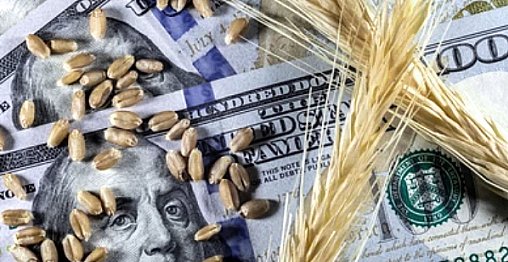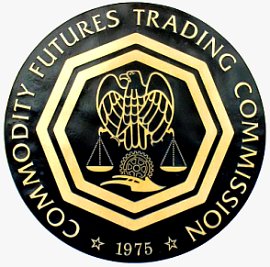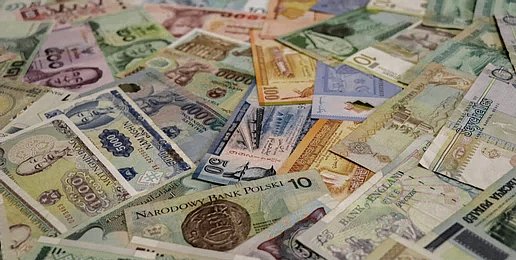Accredited InvestorsAltcoinAnatoli UnitskyAnti-Money Laundering (AML) In CryptoAPIArbitrageArtCoin TokenArticle DirectoryASICAuction Terminology GlossaryBasics of Stock Market InvestingBear MarketBest Crypto Payment Provider In the WorldBitcoinBlockchainBlockchain ConfirmationBlockchain Consensus MechanismBlockchain ForkBlockchain GlossaryBored Ape Yacht ClubBuild a Business That OutperformsBull MarketBuying SkyWay SharesByzantine Fault Tolerance (BFT) ExplainedCasascius CoinCentral Bank Digital Currency (CBDC)Centralized Crypto ExchangeCoinCoinsetCold WalletCollateralCommodity Futures Trading Commission (CFTC)Cross-Chain TechnologyCRUCrypto ExchangeCrypto GlossaryCrypto JokesCrypto Terms to KnowCrypto TickerCryptocurrencyCryptographyCryptojackingCryptounit BlockchainCryptounit GlossaryCryptounit ProgramdApp (Decentralized Application)Dead CoinDecentralized Exchange (DEX)Decentralized Finance (DeFi)Difference Between Bitcoin and EthereumDifferent Ways of Investing MoneyDigital CurrencyDistributed LedgerDo Your Own Research (DYOR)Dollar Cost Averaging (DCA)Dow Jones Industrial Average (DJIA)EncryptionERC-20ERC-721EthereumEvoScentFear Of Missing Out (FOMO)Fear, Uncertainty and Doubt (FUD)Fiat MoneyFNT Fintech CompanyGenesis BlockGlobal Unit PayGlossary of Banking TermsGlossary of Business TermsGlossary of Financial TermsHalvingHODLHot WalletHow Do I Start InvestingHow Rich is Satoshi Nakamoto?How to Create a BlockchainHow to Find Private InvestorsHow to Get Into FintechHow to Program Smart ContractsI Am Thrilled to Be a Part of This Global ProjectInitial Coin Offering (ICO)Initial Public Offering (IPO)Initial Token Offering (ITO)Innovation Basalt TechnologyInnovative Transportation TechnologiesInternational Bank Account Number (IBAN)Investing in Gold Mining StocksInvesting in Gold MiningJagerJoy of Missing Out (JOMO)Know Your Customer (KYC)LedgerLiquidity in CryptocurrencyMaker and Taker Fees in Crypto TradingMarket Capitalization (Market Cap)Meme CoinMetal Credit CardMetaMaskMillenials Now Have Access to Generational WealthMy Best Investment EverNew Digital EvolutionNFT GlossaryOff-Chain TransactionsOn-Chain TransactionsOpen Edition NFTPeer-to-Peer (P2P)Personal Loan GlossaryProbably the Best STO on the MarketProof of Stake (PoS)Real Estate Glossary of TermsReal Estate Investing GlossaryRebase TokenSecurities and Exchange Commission (SEC)Security Token ExchangesSecurity Token Offering (STO)Soulbound Decentralized Identities for Security TokensSoulbound ID Launch by Stobox Proves a SuccessSoulbound TokensStoboxStock Market GlossaryTestimonialsTether Platform and Token (USDT)UnitEx ExchangeUnitsky String TechnologiesUNTBUSDUValidatorWe Started Investing When We Were 25What are Blue Chip NFT?What are Blue Chip Stocks?What are Crypto Assets?What are Crypto Smart Contracts?What are CryptoPunks NFT?What are Digital Assets?What are Digital Collectibles?What are Gas Fees?What are Gas Wars?What are Hashmasks?What are Non Fungible Tokens?What are Non-Sufficient Funds (NSF)?What are Soulbound Tokens (SBT)?What are Stablecoins in Crypto?What are Transactions Per Second (TPS)?What are Utility NFTs?What are Utility Tokens?What Does Burning Crypto Mean?What Does Diamond Hands Mean?What Does Paper Hands Mean?What Does To The Moon Mean?What Does WAGMI Mean?What Happened to Satoshi Nakamoto?What is a 51% Attack?What is a Baby Boomer?What is a Backlink?What is a Banner?What is a Barcode?What is a Bid-Ask Spread in Crypto?What is a Block in Blockchain?What is a Block Reward?What is a Blockchain Address?What is a Blockchain Node?What is a Blockchain Oracle?What is a Blog?What is a Bond?What is a Bot?What is a Broker?What is a Business Accelerator?What is a Cash Cow?What is a Commercial Bank?What is a Commodity?What is a Con?What is a Credit?What is a Credit Limit?What is a Credit Rating?What is a Crypto Airdrop?What is a Crypto Bridge?What is a Crypto Scam?What is a Crypto Token?What is a Crypto Wallet?What is a Crypto Whale?What is a Crypto Winter?What is a Cryptocurrency Public Ledger?What is a Cryptocurrency Roadmap?What is a DAO?What is a Dark Pool?What is a Day Trader?What is a Dead Cat Bounce?What is a Default?What is a Derivative?What is a Digital Credit Card?What is a Fiscal Quarter?What is a Fungible Token?What is a Governance Token?What is a Grace Period?What is a Hard Fork?What is a Hot Wallet?What is a Hybrid Blockchain?What is a Hybrid PoW/PoS?What is a Joint Account?What is a Market Cap?What is a Merkle Tree in Blockchain?What is a Mining Farm?What is a Nonce? What is a PFP NFT?What is a POS System?What is a Prepaid Card?What is a Private Blockchain?What is a Private Key?What is a Public Blockchain?What is a Public Key?What is a Reserve Currency?What is a Ring Signature?What is a Routing Number?What is a Rug Pull in Crypto?What is a Safe Deposit Box?What is a Satoshi?What is a Security Token?What is a Seed Phrase?What is a Shitcoin?What is a Sidechain?What is a Soft Fork?What is a Spot Market?What is a State Bank?What is a SWIFT Code?What is a Tax Identification Number (TIN)?What is a Time Deposit?What is a Transaction Account?What is a Variable Interest Rate?What is a Virtual Assistant (VA)?What is a Virtual Card?What is a Virtual Currency?What is a Visa Card?What is a Whitelist in Crypto?What is a Whitepaper?What is Accounts Payable (AP)?What is AMA in Crypto?What is Amortization?What is an Accrual?What is an ACH Transfer?What is an Actuary?What is an Addendum?What is an Algorithm?What is an Angel Investor?What is an Annuity?What is an Asset?What is an ATM?What is an Atomic Swap?What is an Audit?What is an Avatar?What is an EIN?What is an Embargo?What is an Entrepreneur?What is an IDO (Initial Dex Offering)?What is an Interest Rate?What is an Internet cookie?What is an Investment Bank?What is an NFT Drop?What is an NFT Floor Price?What is an Ommer Block?What is an Orphan Block?What is an Outstanding Check?What is an Overdraft?What is Artificial Intelligence (AI)?What is B2B (Business-to-Business)?What is B2G (Business-to-Government)?What is Bartering?What is Bitcoin Dominance?What is Bitcoin Pizza Day?What is Blockchain Immutability?What is Blockchain Used For?What is BRICS?What is Business-to-Consumer (B2C)?What is C2C (Customer to Customer)?What is Capitalism?What is Catfishing?What is CFD Trading?What is Check Kiting?What is Cloud Mining?What is Communism?What is Content Marketing?What is Decentralization in Blockchain?What is DeFi in Crypto?What is Delisting?What is Depreciation?What is Digital Marketing?What is Diversification?What is Double Spending?What is Dumb Money?What is Dumping?What is Earnings Per Share (EPS)?What is Economics?What is Email Marketing?What is Equity?What is Etherscan?What is Fintech?What is Foreign currency?What is Forex?What is Fundamental Analysis (FA)?What is GameFi?What is Generative Art NFT?What is Gwei?What is Hard Currency?What is Hash Rate?What is Hashing in Blockchain?What is Inflation?What is Initial Game Offering (IGO)?What is Interest?What is Interest Income?What is Mainnet?What is Mastercard?What is Metaverse in Crypto?What is Mining in Cryptocurrency?What is Minting NFT?What is Mobile Banking?What is Money Laundering?What is NFT Alpha?What is NFT Metadata?What is NFT Rarity?What is NGMI Meaning?What is Nominal Interest Rate?What is Online Banking?What is Open-End Credit?What is OpenSea NFT Marketplace?What is Personal Identification Number (PIN)?What is Play-to-Earn?What is Polygon?What is Proof of Authority (PoA)?What is Proof of Work (PoW)?What is Public Key Cryptography?What is Pump and Dump?What is Quantum Computing?What is Refinancing?What is Retail Banking?What is Ripple?What is Sharding?What is Slippage in Crypto?What is Smart Money?What is Solvency?What is Soulbound ID?What is SSL?What is Staking in Cryptocurrency?What is Technical Analysis (TA)?What is Testnet?What is the Ask Price?What is the Better Business Bureau (BBB)?What is the Bid Price?What is the Dark Web?What is the InterPlanetary File System (IPFS)?What is the Gold Standard?What is the Lightning Network?What is the Prime Rate?What is the Sandbox?What is the Secondary Market?What is the World Bank?What is Tier 1 Capital?What is Tokenomics?What is TRC-20?What is Universal Banking?What is Unspent Transaction Output (UTXO)?What is Usury?What is Volatility in Crypto?What is Wash Trading?What is Web3?What is Whisper?What is XRP?What is Zero-Knowledge Proof (ZKP)?Who is Beeple?Who is Satoshi Nakamoto?Who is Vitalik Buterin?Why Tokenization is a Safe HavenWhy You Should Try Your Hand at Trading
What is a Commodity?
- Home
- Glossary of Business Terms
- What is a Commodity?
Commodities are an essential aspect of the global economy, providing the raw materials and resources needed to produce goods and services.

From crude oil to precious metals to agricultural products, commodities are a fundamental part of trade and commerce.
What is a Commodity?
In its simplest form, a commodity is a good that is interchangeable with other goods of the same type. Commodities are typically used as inputs in the production of other goods or services. For example, crude oil is used to produce gasoline, diesel fuel, and other petroleum products, while corn is used to make food, animal feed, and ethanol.
Commodities can be broken down into two main categories: hard and soft commodities. Hard commodities are raw materials or natural resources that are extracted from the earth. Examples of hard commodities include oil, natural gas, gold, silver, copper, and other metals. Soft commodities, on the other hand, are agricultural products such as corn, wheat, soybeans, coffee, sugar, and livestock.
The quality of a commodity may differ slightly, but it is generally uniform across producers. When commodities are traded on an exchange, they must meet specified minimum standards, also known as a basis grade. This ensures that buyers receive a consistent quality product, regardless of the source.
How are Commodities Traded?
Commodities can be traded in several ways, including through futures contracts, options, exchange-traded funds (ETFs), and physical markets. Futures contracts are agreements to buy or sell a commodity at a predetermined price and date in the future. These contracts allow producers, consumers, and investors to hedge against price fluctuations and manage their risk exposure.
Options are similar to futures contracts but provide the buyer with the right, not the obligation, to buy or sell a commodity at a specified price and time. Options can be used to protect against price volatility or to speculate on future price movements.
ETFs are investment funds that hold a basket of commodities or commodity-related securities. These funds allow investors to gain exposure to commodity markets without directly purchasing physical commodities. Physical markets involve the physical delivery of commodities, such as oil tankers or grain silos.
What Factors Affect Commodity Prices?
Commodity prices are influenced by several factors, including supply and demand, geopolitical events, weather patterns, and currency exchange rates. For example, a drought in a major agricultural producing region can lead to lower crop yields and higher prices for soft commodities like corn and wheat. Similarly, geopolitical tensions or conflicts can disrupt supply chains and cause prices to spike.
Currency exchange rates can also affect commodity prices, as most commodities are priced in US dollars. A stronger dollar can make commodities more expensive for buyers in other countries, while a weaker dollar can make them more affordable.
In recent years, the rise of emerging markets like China and India has also had a significant impact on commodity prices. These countries have seen rapid economic growth and industrialization, driving up demand for commodities like oil, steel, and copper.
The Pros and Cons of Commodity Investing
Investing in commodities can provide several benefits, including portfolio diversification, inflation protection, and potential profit opportunities. However, it also carries risks and challenges that investors should be aware of.
One of the main advantages of commodity investing is portfolio diversification. Commodities often have a low correlation with other asset classes like stocks and bonds, meaning that they can provide a hedge against market downturns. Additionally, commodities have historically provided a hedge against inflation, as rising prices for raw materials can drive up the cost of goods and services.
However, commodity investing also has several disadvantages. One of the main challenges is the high volatility of commodity markets, which can lead to significant price fluctuations and potential losses. Additionally, investing in commodities requires a deep understanding of supply and demand dynamics, as well as geopolitical and weather-related risks.
Another potential downside of commodity investing is the high transaction costs involved. Commodity futures contracts and options typically require margin deposits and brokerage fees, which can add up quickly. Additionally, physical commodities like gold and silver may require storage and insurance costs.
Investors interested in commodity investing should also be aware of the potential for fraud and manipulation in commodity markets. Some unscrupulous traders and companies may engage in insider trading or other illegal activities to profit from commodity price movements.
The Bottom Line
Commodities are an essential part of the global economy, providing the raw materials and resources needed to produce goods and services. From oil to gold to corn, commodities play a crucial role in trade and commerce. Understanding the basics of commodity markets, including the different types of commodities and how they are traded, can help investors make informed decisions about commodity investing. However, it is important to be aware of the risks and challenges involved in commodity investing, including volatility, transaction costs, and the potential for fraud and manipulation.
Related Articles

Commodity Futures Trading Commission (CFTC)
The CFTC's jurisdiction covers a wide range of commodities, including agricultural products, energy, metals, and financial instruments such as stock indices and currencies.

What is a Fungible Token?
Fungible tokens are commonly used in financial applications such as cryptocurrencies, stablecoins, and security tokens which represent assets such as gold, silver, or other commodities.

Fiat Money
While commodity money is not commonly used in today's economy, some countries, such as China and Russia, have been increasing their gold reserves in recent years.
- Home
- Glossary of Business Terms
- What is a Commodity?